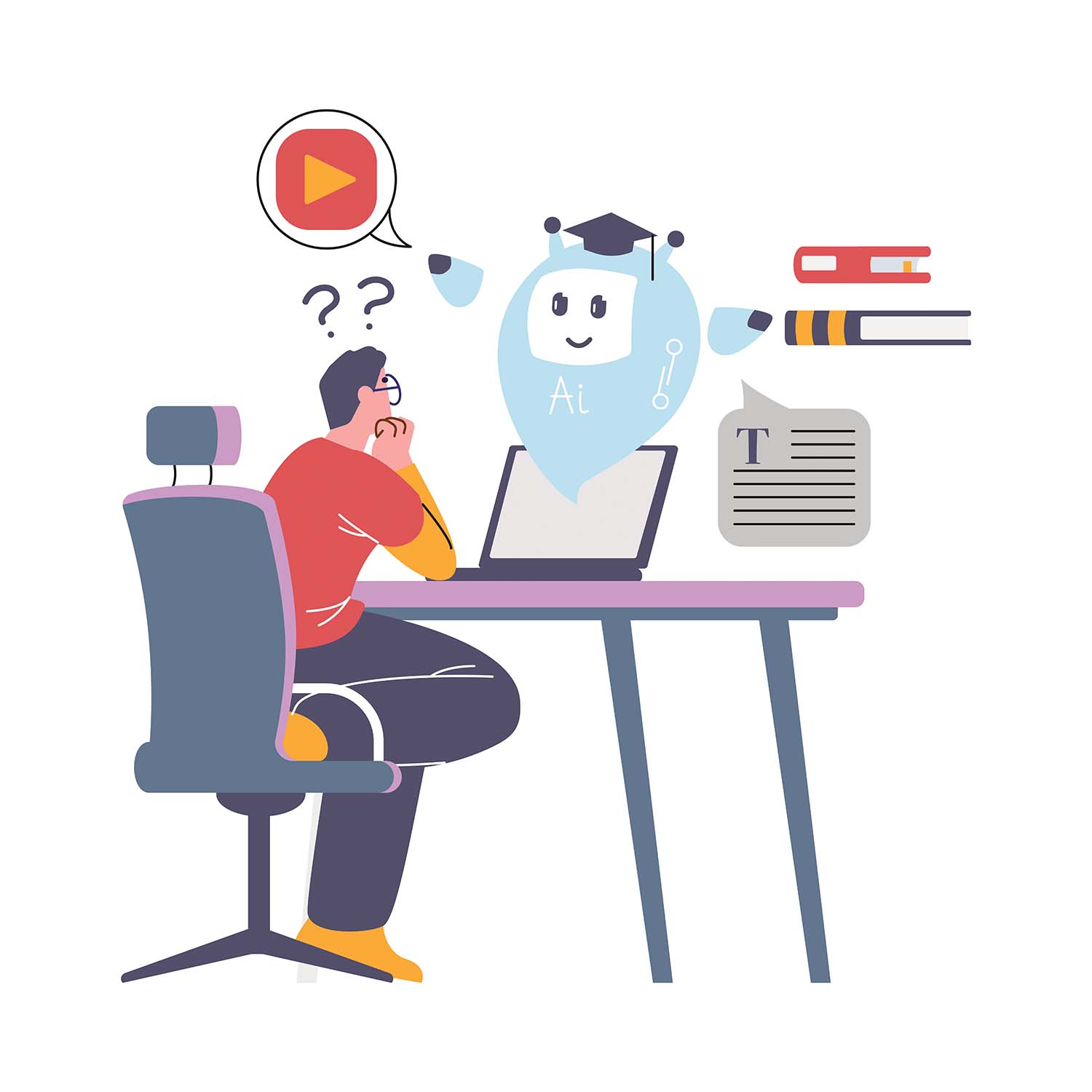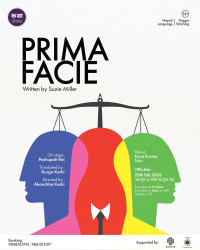Culture & Lifestyle
Is AI making us lazy? Students and teachers have their say
Students rely on machine-generated content, skipping essential processes like analysis, interpretation, and articulation. With conveniences come consequences.
Sanskriti Pokharel
If a machine can do your homework, what’s left for your brain to do? Artificial Intelligence has now become a part of everyday student life. From solving math problems to writing essays, AI tools like ChatGPT are revolutionising how students learn, study, and complete assignments. But with convenience comes a consequence.
According to Microsoft’s 2025 AI in Education report, 93 percent of students across the United States have used AI at least once or twice for school-related purposes. As AI becomes more embedded in education, a crucial question arises: Is it making students lazy?
Sushil Paudel, faculty lead of English at St Xavier’s College, has noticed a concerning shift in student habits. According to him, AI is making students lazy by encouraging shortcuts. He says, “Many students rely on summaries or AI-generated answers instead of reading full texts. This results in superficial and inaccurate interpretations lacking textual evidence. Literature demands immersive engagement, but AI often replaces that necessary journey through character and setting.”
The problem, as Paudel sees it, is not the presence of AI but the way students use it. Instead of a tool to deepen understanding, it has become a crutch to avoid the hard work that academic subjects demand. “Students lose confidence in their writing, thinking it can’t match AI’s polished language, so they stop writing independently,” he adds.
The concern that AI could be eroding critical thinking is growing. Students rely on machine-generated content, skipping essential processes like analysis, interpretation, and articulation. These skills are not just academic; they are life skills.
For instance, in humanities subjects like history and literature, students are encouraged to form opinions, critique arguments, and draw connections. When AI provides them with direct answers, students may no longer feel the need to think deeply. Over time, this can create a factually informed but intellectually passive generation. When a student lets a machine speak on their behalf, it weakens their ability to think, argue, and create. It’s like cheating on your own mind.
Rakhi Bind, a student of Journalism and English Literature, voices these concerns from a student’s perspective. “This trend is gradually diminishing students' creativity.”
According to Bind, literature is a field rooted in emotion and imagination. Machine-generated content is overshadowing these aspects. While she acknowledges that AI can help improve language skills or offer writing assistance, she draws the line at overdependence.
“When students overly rely on AI, it hampers their originality and weakens their connection with literature,” she warns. “True creativity should stem from the students, not solely from a machine.”
The use of Artificial Intelligence is not just limited to schools and colleges. Even scientific research is now deeply influenced by AI tools like ChatGPT. AI is used to write research articles, summarise studies, and analyse data. Consequently, it has also created new problems and sparked serious debates.
One example is a 2023 article published in the journal Oncoscience. ChatGPT wrote most of the article, based on questions asked by researcher Alex Zhavoronkov. Although the article was clear and well-organised, it raised important questions. Should a machine be given credit for writing a scientific article? Can AI be named as a coauthor, just like a human researcher?
Many experts in the scientific community think this is dangerous. They believe that giving AI the same status as a human researcher disrespects people who spend years studying, experimenting, and building knowledge. According to the article, allowing AI to be listed as a coauthor goes against the values of science and academic work. “Equating the dignity of researchers with that of a machine is unacceptable,” the article clearly states.
This situation shows that the lazy use of AI is not just a problem for students who don’t want to do homework. It also affects researchers, scholars, and professionals. When people rely too much on AI, it becomes difficult to know who really did the work, a person or a programme. This confusion can damage trust in academic and scientific fields, where honesty, effort, and originality are supposed to matter most.
In the 1870s, Harvard introduced mandatory expository writing courses due to poor student writing, marking a shift from classical rhetoric to argument-based writing in English. Since then, essays became the standard way to assess student learning but with the rise of generative AI, some are now questioning their relevance.
Kalpana Dahal, a mother of a 10th-grade student, offers a view from the home front. “Before AI took over, my son used to struggle a lot in doing his assignments. Now, he takes help from AI for difficult questions and copies the answer,” she shares. While she admits it has made academic work easier for him, she worries about long-term effects. “Though AI has made it easier, I am afraid he will become dependent on AI. I don’t want him not to use his brain.”

Her concern mirrors that of many parents: while they appreciate that their children have academic support, they also fear the erosion of critical thinking and effort.
However, not everyone sees AI as a problem. For some students, it’s a motivator rather than a deterrent. Anupam Parajuli, an A-level student, says, “AI is the best thing that happened to me. While prepping for A levels exams, especially critical and language-extensive subjects like business and economics, I could understand concepts much better just because I could go back and forth with ChatGPT.”
Rather than making him lazy, Parajuli claims AI increased his productivity. “Studying got way easier. I could put in more hours instead of being stuck and giving up.” For him, AI tools helped organise notes, systematise revision plans, and even sparked creativity. “I learned the content in more creative ways, which was usually beyond the scope of what I'd learn just from books,” he adds.
This shows that AI’s impact largely depends on how students use it. While some use it as a tool for engagement, others use it to avoid effort.
However, there is another subtle way AI contributes to academic laziness, and that is through perfectionism. As Paudel pointed out, many students compare their raw thoughts to AI’s polished output. This leads to a crisis of confidence, especially among students who already struggle with writing.
Rather than embracing their flawed but original voice, students often choose to submit AI-written work. This makes them passive consumers rather than active creators. Over time, they write less, edit less, and think less.
One of the most notable shifts is a drop in reading habits. ChatGPT offers instant summaries and character analysis. Subsequently, students are less likely to read the full texts. This trend is especially damaging in literature classes, where the depth of interpretation relies on the richness of language, style, and narrative. Students no longer linger on metaphors, irony, or voice. They ask ChatGPT to decode meaning and miss the thrill of discovery.
Even plagiarism checkers are struggling to catch AI-written work.
This shift has made many assignments meaningless. Why would a student spend hours researching when a chatbot can do it in minutes? The academic value of original thought is being replaced by efficiency and speed.
Schools and universities need to move beyond rote questions. Assignments should demand personal reflection, critical thinking, and real-life connection. Oral exams, creative projects, and process-focused grading could help. Students must be taught how to use AI as a partner, not a replacement. Knowing when and how to use AI responsibly is just as important as knowing when to avoid it.
Students must be reminded that knowledge is not just about getting answers; it’s about the process of asking, struggling, and discovering them on their own. No machine, however intelligent, can replace the human desire to know, create, and express.




 14.12°C Kathmandu
14.12°C Kathmandu















